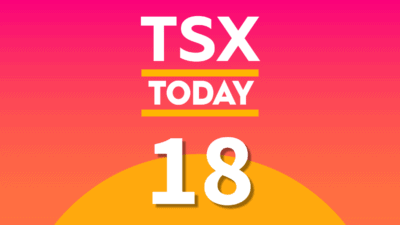Are there two generations who hate each other more than baby boomers and millennials? The animosity is amazing.
To summarize what’s an incredibly complex relationship, we’ll just cover the main points. Many millennials think baby boomers are slowly destroying the planet because they insist on consuming so much.
Boomers are also accused of hoarding all the good jobs, making house prices unaffordable, and not embracing social changes.
Older folks, meanwhile, bemoan the younger generation for being lazy, flaky, and wanting to have a comfortable existence immediately after university. Sure, housing might have been much cheaper 30 years ago, but interest rates were in the double digits and people needed to save 25% before a bank would talk to you. They think millennials should stop complaining and learn to deal with the world around them.
No matter which side of this debate you’re on, one thing is sure. Some investment decisions made by baby boomers are unlikely to work out as well for subsequent generations. Millennial investors, you’re going to want to read this.
Too much real estate
Canadian real estate has been a stellar investment over the last three decades. Interest rates decreasing, governments encouraging home ownership, and demographics all played a hand in this massive trend.
Folks in places like Toronto and Vancouver are now sitting on a small fortune in real estate. These new millionaires are middle-class folks who just happened to buy in the right neighbourhood and hang on for a few decades. Some of these people have precious little net worth outside of their primary residence, encouraged by previous results.
While I’m hardly a Canadian real estate bear, I still don’t think investors can count on 5-7% capital gains on their primary residences over the next 30 years. I suspect real estate will do what it usually does, which is barely outperforming inflation.
That’s hardly a disastrous outcome, but someone who buys their dream home today will likely be a little disappointed with the result.
High fees
You can’t really fault the baby boomers on this one. Back in the 1980s and 1990s, investors had no choice. High-fee mutual funds were the only game in town. Without them, the average investor didn’t have access to the stock market.
Yes, stock brokers existed back then, but high commissions and a lack of information about potential investments made going that route unappealing.
These days investors have no excuse. There are hundreds of low-fee exchange traded funds out there, some charging as little as 0.05%. And yet there are still millions of investors — millennials included, although the majority of these folks are boomers — who are paying 2% annually in investing fees. This is almost universally a bad choice.
Not saving enough
The stats are in, and they’re not encouraging. Many baby boomers haven’t saved enough for retirement.
The sad part is that boomers had all sorts of advantages. Workplace pensions were common during their peak working years. The stock markets of the 1980s and 1990s did extremely well.
And, for the most part, boomers saw their wages increase while debt servicing costs decreased, naturally creating the beginning of a good savings rate.
The good news is that millennials are beginning to get this message. Thanks to such choices as attending university and delaying marriage (and kids) until later in life, you could argue that the average millennial is in better shape than older generations financially, although median net worth might be slightly less when adjusted for inflation.
One thing is sure, however. Millennials are much more conservative than baby boomers were at the same age, and are much more likely to pay down debt or keep an emergency fund.
The bottom line
One massive advantage millennials have over baby boomers today is the ability to grow their investments tax free inside a TFSA for a few decades. As long as a millennial makes their annual contribution and gets a decent rate of return, retiring a millionaire is very possible.
Don’t let the generational gap get you down, millennials. The emerging generation is well prepared to flourish, even with baby boomers doing their best to maintain the status quo.







